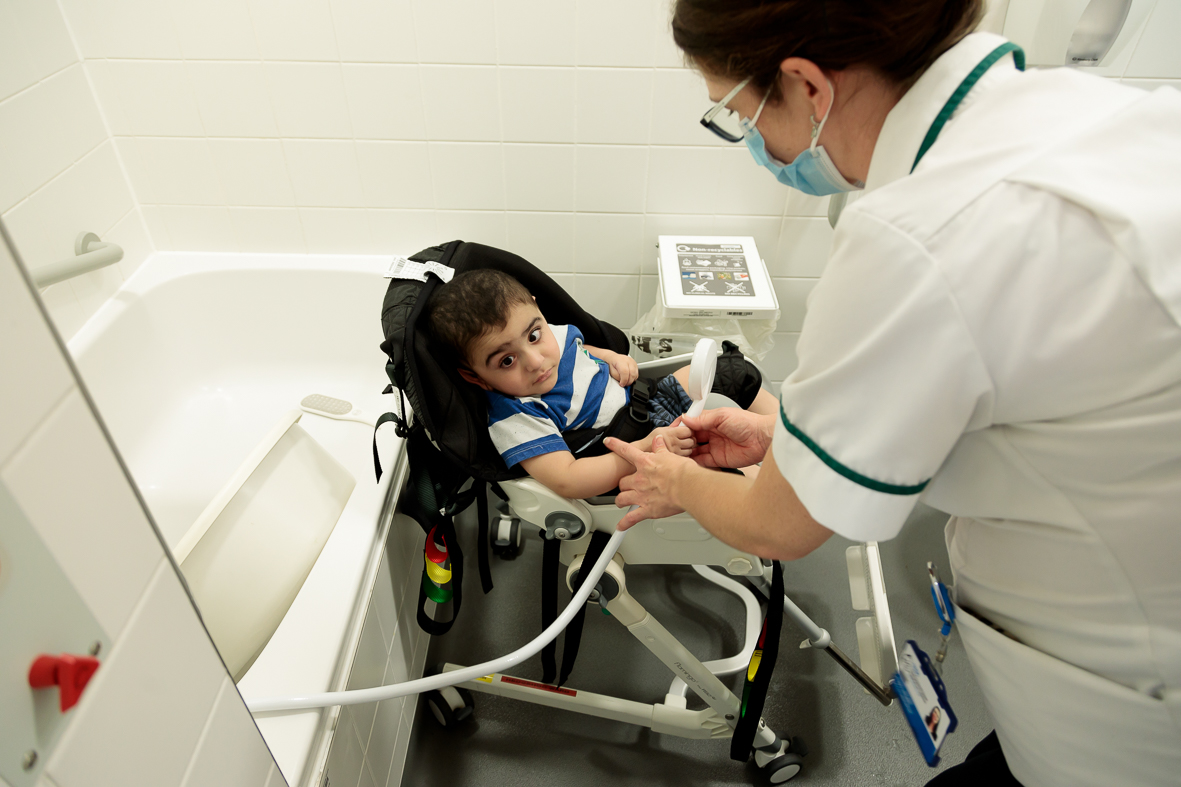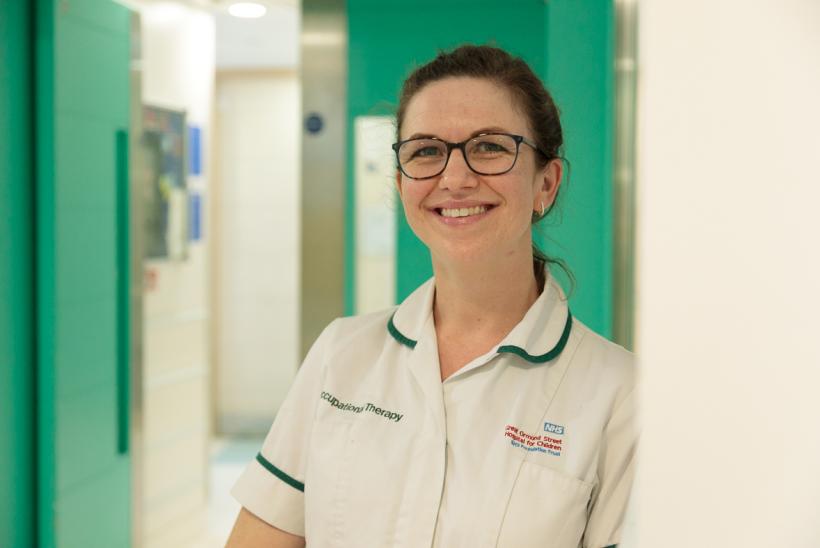Occupational Therapy at GOSH: A Q&A with Kerry Brown
At Great Ormond Street Hospital (GOSH), occupational therapy plays a crucial role in helping children navigate the challenges of illness, disability, and developmental delays. Much like the inspiring athletes of the Paralympic Games, children receiving occupational therapy show incredible resilience, determination, and a drive to overcome obstacles. In fact, many Paralympians themselves may have benefited from occupational therapy at some point in their lives, enabling them to gain independence and thrive in both daily activities and elite sports.
Just as the Paralympics celebrate the strength and perseverance of individuals with disabilities, our occupational therapists empower young patients to achieve their personal best, whether it's mastering self-care skills or excelling in school and play. To explore the profound impact of occupational therapy, we spoke with Kerry Brown, one of our dedicated occupational therapists and Clinical Lead at GOSH International and Private Care about her background, her work, and the rewarding experiences she's had with our young patients.
1. Could you start by sharing a brief bio about yourself? Tell us a bit about your background, qualifications, and what inspired you to specialise in occupational therapy.
I graduated with distinction in BSc Occupational Therapy from the University of Cape Town. After moving to the UK, I specialised in paediatrics, working in both private practice and the NHS. I joined Great Ormond Street Hospital in 2019. I speak four languages and am certified in Sensory Integration, the Newborn Behavioural Observations (NBO) system, and the Assisting Hand Assessment (AHA). I’m also a member of the World Association for Infant Mental Health (WAIMH).
My focus is on neurology and infant care, something I've been passionate about since my student days. I enjoy presenting at conferences, and I’ve written a journal article on my work in Paediatric and Neonatal Intensive Care Units (PICU and NICU). More recently, I contributed a chapter to a textbook on occupational therapy in neurodisability for paediatric neurologists. Outside of work, I love watching wheelchair tennis at Wimbledon, running, paddleboarding, and horse riding.
I was inspired by my mother, who worked as a paediatric nurse, and after shadowing an occupational therapist, I completely fell in love with the profession. It’s incredibly rewarding because you can have a real impact on children’s development. I love watching them reach milestones and gain confidence through playful and creative interventions. The joy and resilience they bring to each session make this work both fun and fulfilling.
2. How would you describe occupational therapy to someone who has never heard of it?
Occupational therapy (OT) with children helps them develop the skills they need for everyday tasks like dressing, eating, playing, and participating in school. We work with children who have developmental or physical challenges, focusing on improving their ability to function independently and thrive in daily life.
3. How does occupational therapy differ from physiotherapy?
Occupational therapy and physiotherapy are closely linked, and a child might need one or both depending on their individual needs.
Occupational therapists focus on helping children with daily activities and fine motor skills, while physiotherapists concentrate on improving physical movement and gross motor skills. Both professions are essential for a child's overall development but address different aspects of their growth and well-being.
4. When might a child need occupational therapy?
A child might need occupational therapy for several reasons, including:
1. Post-surgery – to help regain functional abilities like movement, self-care, and daily living activities.
2. Acute medical conditions – for adapting to changes in physical or cognitive function, such as severe respiratory issues, cardiac conditions, cancer treatments, or complex medical diagnoses.
3. Neurological events – like a stroke or brain injury, occupational therapy can assist in rehabilitation, hand function, and independence in self-care.
4. Developmental delays – we help with daily tasks and support children in achieving their next developmental milestone.
5. Critical care – occupational therapists in critical care help maintain or improve functional abilities, address sensory and cognitive needs, and assist with positioning to prevent complications like contractures or pressure sores.
At GOSH, we assess each child individually to determine if occupational therapy would benefit them, and we provide tailored advice accordingly.
5. Can you share a case where your work made a significant impact on a patient’s life?
Working with conjoined twins at GOSH who were successfully separated just before COVID was a truly unique experience. Their extended stay due to travel restrictions allowed us to work together with the family for a longer period, and we were able to set and achieve long-term goals. It highlighted the importance of early intervention and a multidisciplinary, family-centred approach.
Another memorable case involved a father who brought his newborn to GOSH while the mother, due to illness, couldn’t travel. Seeing the father’s confidence grow as he learned to manage his child’s complex needs was incredibly inspiring. He made sure his child had the best possible quality of life, and it was heart-warming to witness his journey.
6. What do you enjoy most about working with children at our hospital?
One of the most rewarding aspects of working at GOSH is the specialist teamwork. Our multidisciplinary team, which includes interpreters, nurses, dietitians, speech therapists, doctors, and play therapists, collaborates closely to prioritise the child’s needs. We regularly meet to carefully plan each child’s care, ensuring their family is actively involved in setting therapy goals. This teamwork approach is key to providing the best possible care.

Kerry during an occupational therapy session with a patient
The Paralympics and Occupational Therapy
Kerry’s passion for paediatrics and her enthusiasm for watching wheelchair tennis align closely with the values of the Paralympics, which celebrate strength, resilience, and the triumph of the human spirit. Occupational therapy, much like Paralympic sports, encourages individuals to overcome limitations and achieve independence in their everyday lives.
Many Paralympians may have received occupational therapy at some point, helping them develop the skills to manage daily activities or enhance their mobility. Just as Paralympians demonstrate perseverance in the face of adversity, children who receive occupational therapy at GOSH show remarkable resilience and strength on their journey towards greater independence. The role of occupational therapists like Kerry is to empower these children, helping them thrive despite any challenges they may face.

